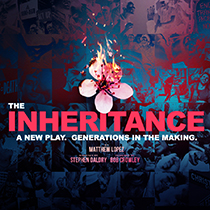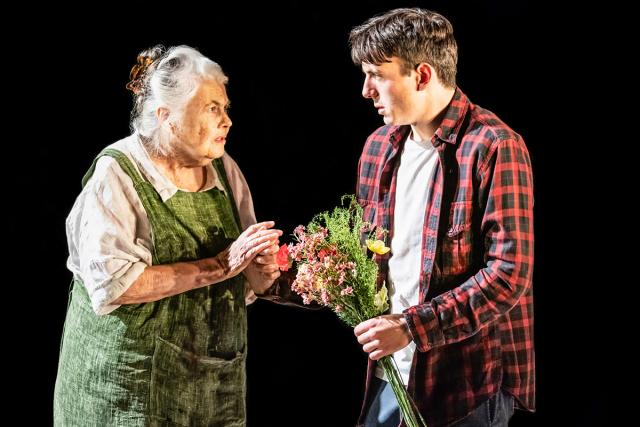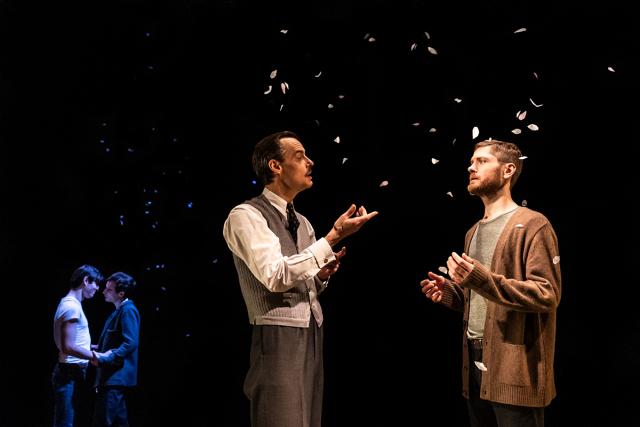


Every generation or so since the late 1960s, a new play encapsulating the gay experience opens in New York. The Boys in the Band, Torch Song Trilogy, Love! Valour! Compassion!, and Angels in America have defined their respective gay moment and how the general society is reacting to it. Matthew Lopez’s The Inheritance is the latest theatrical chronicle of the American gay journey. The massive work checks all the right boxes for a certifiable hit. A smash production in London complete with Olivier Awards, glowing reviews and snob appeal, an epic two-evening running time of over seven hours, a fluid, funny, clever production from director Stephen Daldry, and moving, intense performances. The play itself, inspired by “Howard’s End,” E.M. Forster’s classic novel of connection and redemption, is a mixed bag of brilliant moments of pathos, insight, and observation, as well as extraneous, melodramatic and forced scenes.
Lopez does not slavishly adhere to Forster’s original text of Edwardian class conflict in pre-World War I England. He used the plot template of the liberal Schlegel sisters and their interactions with the conservative, ultra-rich Wilcox clan to explore where we are as a culture and how gay men have adjusted to the aftermath of the AIDS crisis, marriage equality, and the resurgence of a homophobic political agenda from the right. There is much to savor here, but there are plenty of bumps and rough stretches along the way.
The play begins simply, then Lopez and Daldry skillfully develop and build the perspective into a deeper, more complex view. The casually-dressed cast is seated around Bob Crowley’s bare set scribbling in notebooks as if in a creative writing class. A figure dressed in 1910s style (Crowley also designed the subtly appropriate costumes) emerges. This is Forster himself (played with elegant understatement by Paul Hilton) offering his advice to the next generation of gays on constructing their narrative. The actors address the audience, finishing each other’s sentences, and tell the fraught story of empathetic political activist Eric (wonderfully sincere Kyle Soller) and self-destructive writer Toby (overacting Andrew Burnap), a couple whose connection parallels the battle between self-love and self-deprecation many gay men endure.
There are a plethora of subplots, but the central thread concerns the duo’s relationship to the wealthy, covetous Henry Wilcox (solid and shaded John Benjamin Hickey) and his more compassionate partner Walter Poole (also played by Hilton). Also figuring prominently are narcissistic actor Adam and pathetic hustler Leo, both enacted with precision and variety by Samuel H. Levine.
For every emotionally impactful punch, such as the devastating Part One finale where Eric encounters the ghosts of AIDS victims in a parade of stolen lives, there is a superfluous segment such as an endless debate on the values of camp. Another example is the late-Part-Two cameo of the only female character, Margaret. While her monologue relating the death of her son from AIDS is shatteringly written and sensitively played by the magnificent Lois Smith, it does not convey any new information or insight, and the character feels tossed in out of left field. None of the minor characters are fully developed and Toby’s long spiral downward after achieving success with a supposedly autobiographical novel and play is melodramatic and over-the-top, particularly as played by the hyperventilating Burnap. Yet, The Inheritance’s strengths outweigh its shortcomings and Daldry’s well-paced, versatile staging makes the marathon length fly by.
